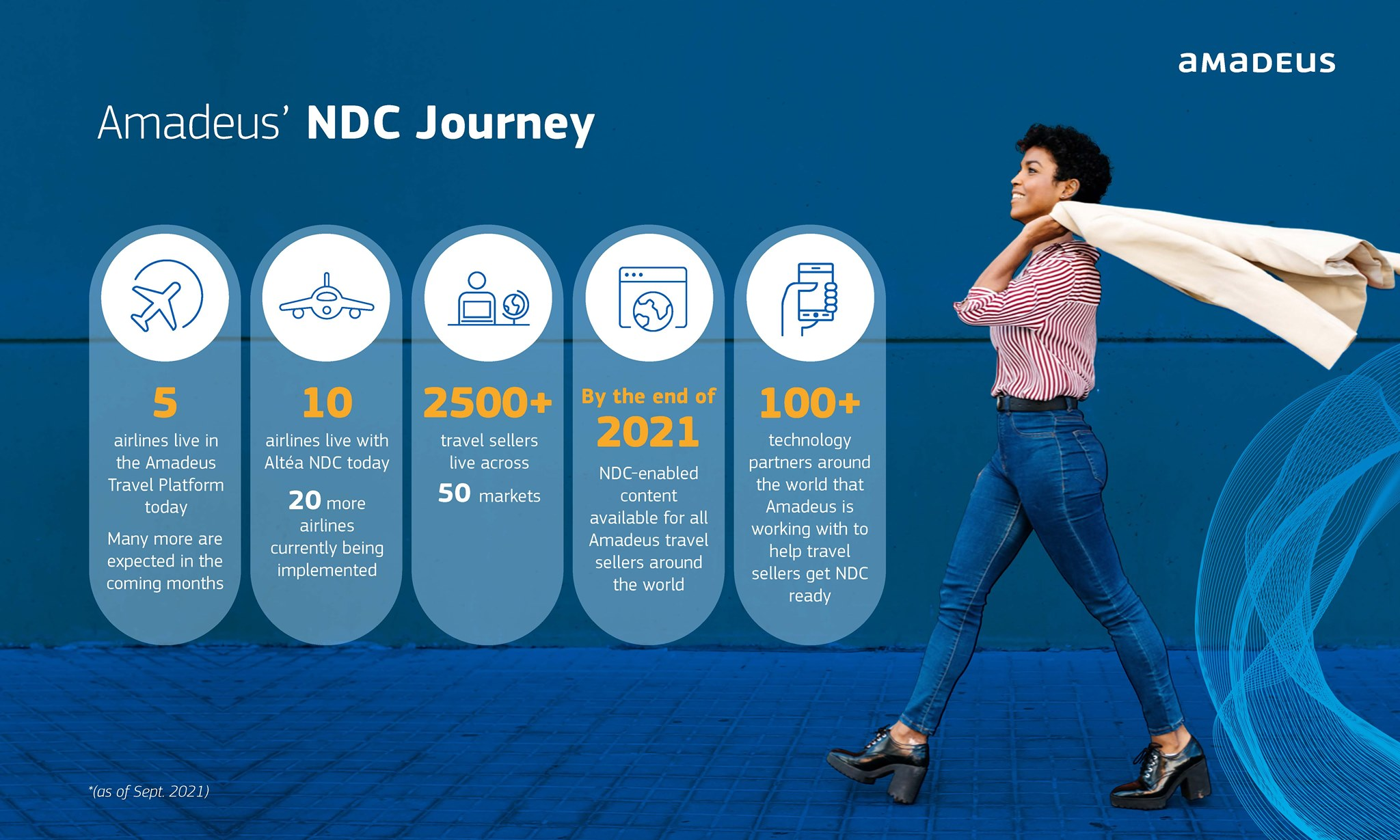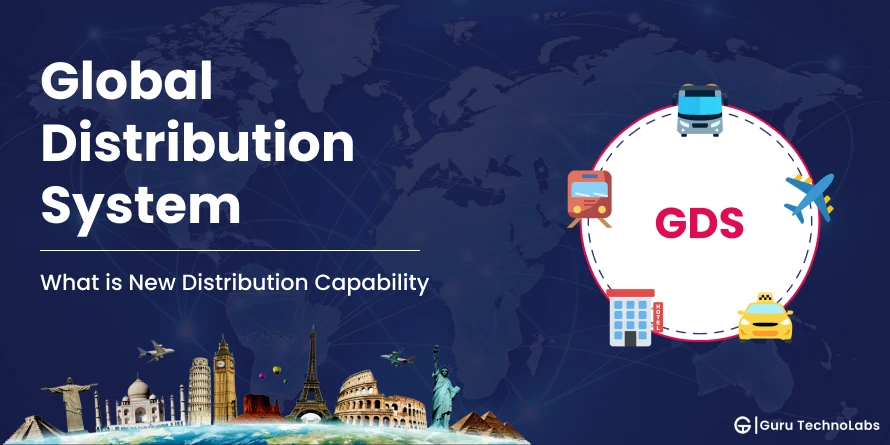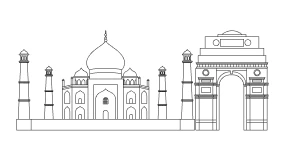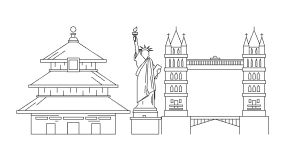The global buzz around NDC is getting louder and for good reason. It’s not just another tech upgrade, it’s a shift that’s challenging the long-standing dominance of the Global Distribution System (GDS) in travel booking. For decades, GDS has been the go-to channel, trusted for its broad reach and standardized access to fares and schedules. But in a digital-first world, GDS is starting to show its age.
Now, as airlines seek more control, customization, and customer-focused selling, NDC is stepping into the spotlight. Many still confuse NDC with GDS, assuming they’re two versions of the same thing. That couldn’t be further from the truth.
There are clear differences in how they function, the value they deliver, and the direction they point the industry toward. In this guide, we break it all down, what sets them apart, what it means for the industry, and why the shift to NDC matters more than ever.
What is NDC? A New Era in Airline Distribution

The New Distribution Capability (NDC) is a game-changing, XML-based data transmission standard developed by IATA. It enables airlines to distribute rich, personalized content directly to travel agents, corporate buyers, and third-party platforms, bypassing some of the limitations of traditional systems.
The numbers speak for themselves. According to IATA, more than 60 airlines have adopted NDC, and the industry aims for 100% of offers to be NDC-sourced by 2030. The NDC-enabled air travel market is expected to .surpass $40 billion globally by 2026, signaling a major transformation in how travel will be bought and sold.
For airlines, NDC offers better differentiation and higher profit margins. For travel sellers, it opens up new ways to deliver value and stay competitive in an evolving market.
In short, NDC isn’t just a technical evolution, it’s a commercial revolution.
How Does NDC Work?
- Offer Creation: Airlines use NDC standards to generate personalized offers (fares, bundles, and ancillaries) based on travel data and user preferences.
- API Request: Travel agents or platforms send a request to the airline’s system via NDC-enabled APIs.
- Dynamic Response: The airline responds in real time with tailored offers, including pricing, seat selection, and add-ons.
- Order Management: The selected offer is booked, with the NDC API managing payment and confirmation directly with the airline.
- Post-Booking Services: Any changes, cancellations, or service requests are handled through the same NDC connection, ensuring smooth follow-up.
This end-to-end process enables more flexible, transparent, and customer-centric distribution compared to traditional GDS channels.
Benefits of NDC
- Personalized Offers: Airlines can tailor offers using traveler profiles and preferences, similar to modern eCommerce.
- Richer Content: Visuals like seat maps, baggage options, and branded fare details enhance the customer experience.
- Dynamic Pricing: Real-time pricing allows for better revenue management and customer segmentation.
- Direct Airline Control: Airlines can control how their products are displayed and sold, reducing reliance on third-party systems.
- Better Ancillary Sales: It’s easier to upsell products like baggage, meals, seat upgrades, and Wi-Fi during booking.
- Greater Transparency: Travelers and agents see exactly what’s included, reducing confusion around fees and fare rules.
- Modern Integration: Built with XML/JSON APIs, NDC is better suited for modern platforms and quicker innovation than legacy GDS systems.
Challenges of NDC
- Slow Agent & OTA Adoption: Many agents still rely on GDS, and transitioning to NDC requires training and system updates.
- Fragmented Access: Not all airlines have fully or consistently adopted NDC, leading to gaps in content.
- Complex Implementation: Integrating NDC into existing systems can be costly and technically challenging, especially for smaller players.
- Inconsistent Standards: Although IATA provides a framework, airlines may implement NDC differently, creating inconsistencies.
- Dependence on GDS for Scale: Many travel sellers are waiting for GDS platforms to fully support NDC, delaying broader adoption.
Comparing GDS with New Distribution Capability (NDC)
Global Distribution Systems (GDS) act as a middleman between travel agents and airlines, allowing bookings for flights, hotels, and more, all in one place. It’s a centralized, trusted solution that has powered the travel industry for decades.
However, today, many companies are relying on GDS to deliver NDC content rather than investing in new systems. Online booking tools (OBTs) and corporate travel agencies are waiting for GDS platforms to integrate NDC so they don’t need to build direct connections.
In this way, GDS may not be replaced by NDC, but instead may become the delivery vehicle for it.
Ultimately:
- GDS is built for consistency and volume.
- NDC is built for personalization and innovation.
Ultimately, GDS is about scale and standardization. NDC is about flexibility and personalization. Travel businesses that understand this distinction will be better positioned to meet modern traveler expectations.
What Future does NDC Hold?
NDC adoption is accelerating. As of 2025, over 60% of airlines are using it to some degree, with some already handling up to 80% of indirect sales via NDC. This trend is expected to grow as airlines aim for more personalized, transparent, and profitable retailing strategies.
The future points toward cloud-based platforms, seamless integration, and closer collaboration between airlines, agencies, and tech providers. NDC is becoming the foundation for a digital-first travel retailing model, unlocking new revenue streams and improving the customer journey.
In short, NDC is not a passing trend. It’s redefining how air travel is sold and experienced.
Frequently Asked Questions
NDC is a modern technology standard that lets airlines sell flights and extras directly with more control and customization.
Not yet - NDC is growing, but GDS still plays a major role in global travel distribution.
It allows them to offer personalized pricing, rich content, and better control over production and distribution.
Yes, but access depends on the tools they use and whether those platforms support NDC integration.
Not always, but it can offer exclusive bundles or personalized deals not available through GDS.
















